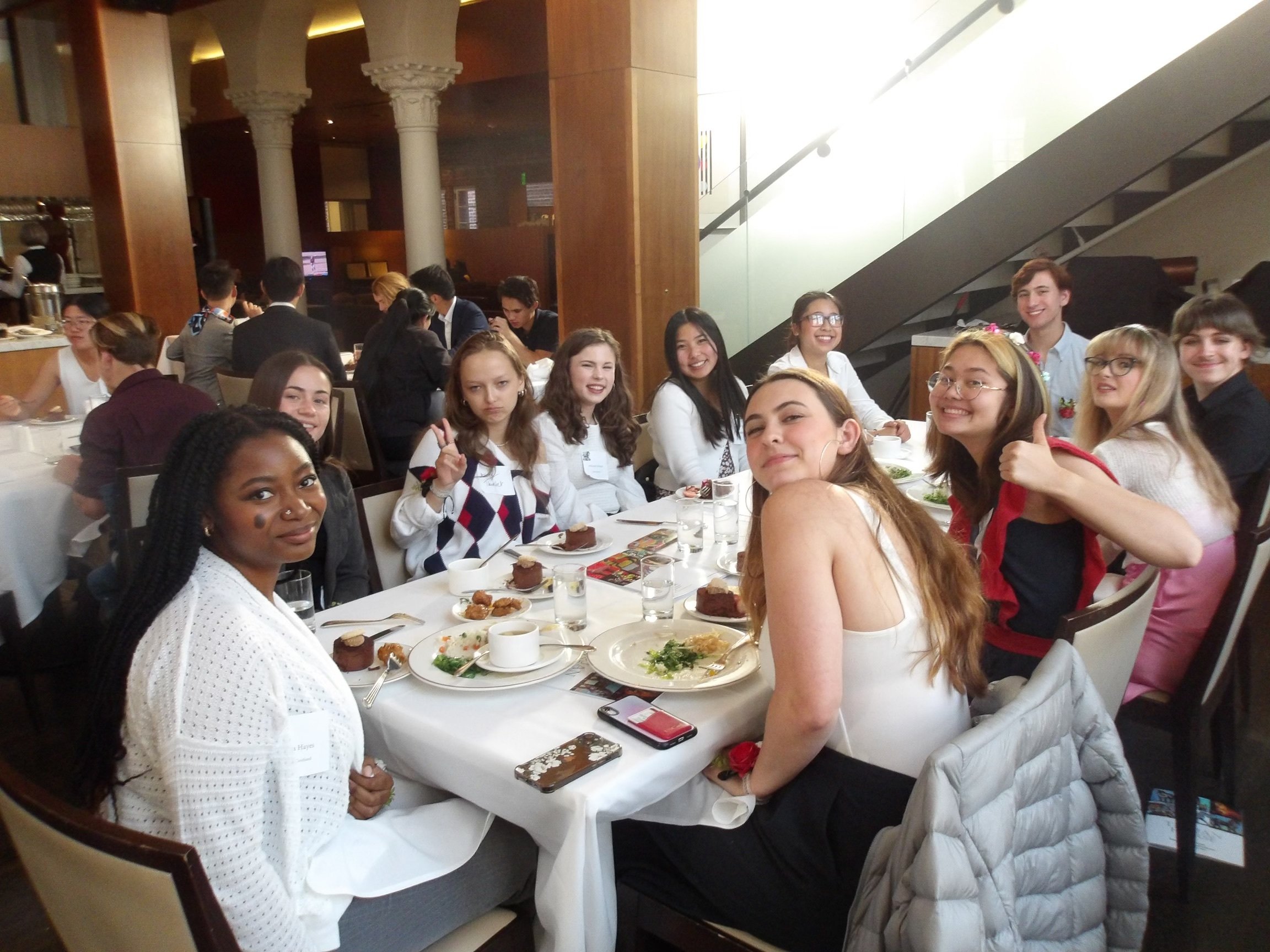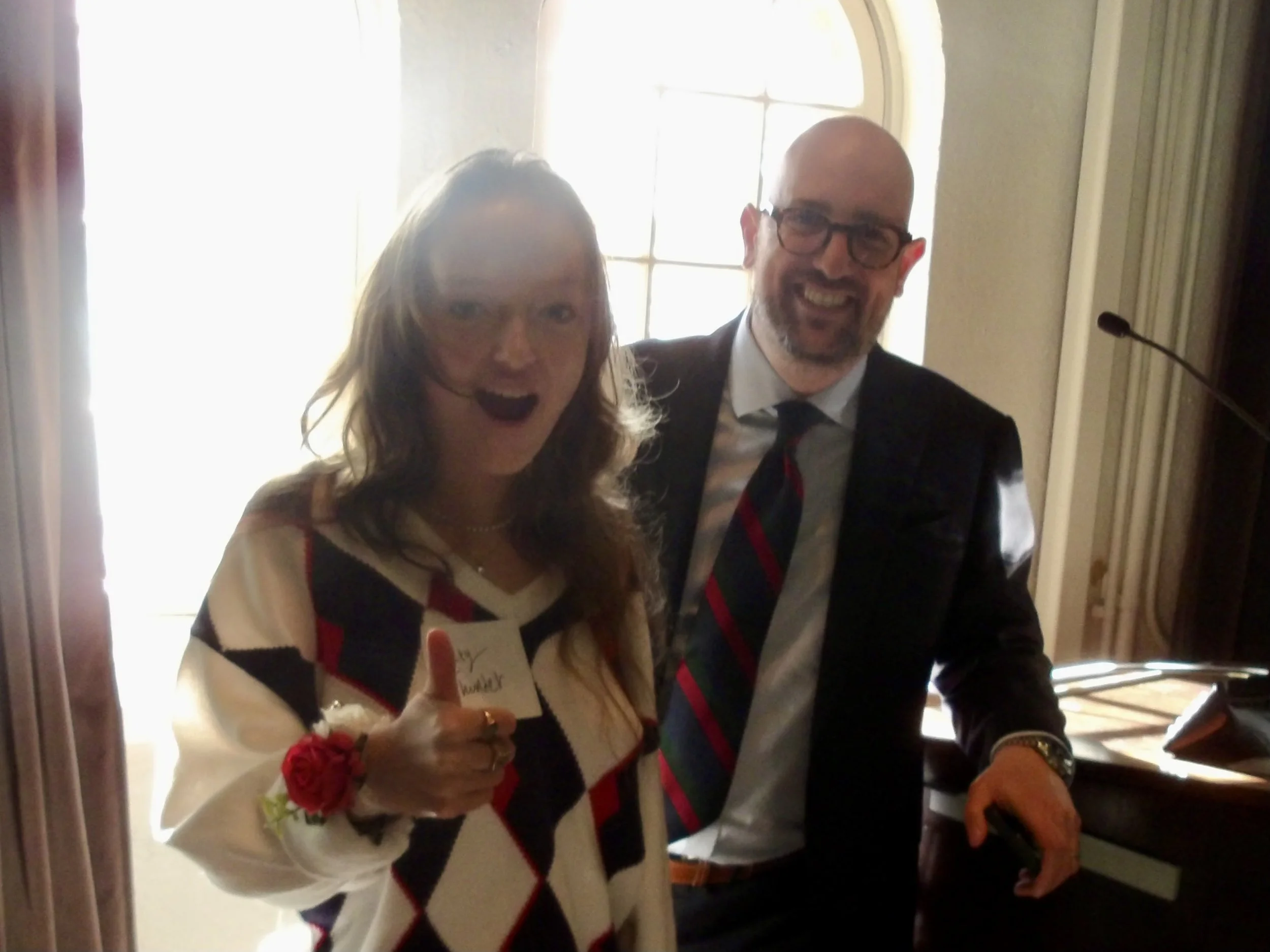Should You Join Thematic Option
by Avery Thunder ‘26
One of my biggest fears when starting at USC was the sheer size of the student body. I went to a tiny high school where everyone knew everyone. Moving to a university with over 20,000 students, I was scared I would drown. This was one of the main reasons I joined Thematic Option – because it offered small class sizes, along with academic rigor.
What is Thematic Option?
Thematic Option is a bit of a confusing concept, and I would say that USC doesn’t explain it optimally to the undergrad population. Thematic Option changes one thing about your time at USC – your general education requirements. USC has a variety of GE requirements, and which ones you have to take depend on many different factors. For example, if you take an Advanced Placement (AP) class and pass with a 4 or higher, you will receive credit from the university, however whether it counts as elective credit or covers a particular GE depends on the class. Although your major doesn’t change the requirements, it can often change how GEs affect your class load. If you’re majoring in a science, the GEs that focus on math and science will probably be covered by classes you already have to take, and generally, every major will have a few GEs covered within their required courses regardless of the discipline.
Thematic Option changes the traditional USC requirements, exempting students from both the writing requirement and GE seminar (GSEM). The only GEs that remain are an abbreviated schedule of subject specific GEs with one class in each of the following: C (Social Analysis), A (The Arts) , F (Quantitative Reasoning), and E (Physical Sciences). They call them the CAFE requirements. The other GE classes are then substituted with Thematic Option classes, which are more intensive, reading and writing heavy, and have a much smaller class size.
Freshman year, students are required to take CORE 102, CORE 111, and CORE 112. CORE 102 is a lecture-discussion class. These classes often create a sort of foundation for students. Many assign works that are commonly alluded to in literature like the Metamorphoses by Ovid, the Aeneid by Virgil, Homer, and Shakespeare, to name a few. This class can have a massive workload, depending on your professor.
CORE 111 is a writing seminar class. It is all discussion based. As 111 and 102 and taken in the first semester, 111 takes from works that are already being read in 102 and uses them for analysis and writing. This is by far my favorite Thematic Option class I’ve taken. I could genuinely see the improvement in my writing by the end of the semester. CORE 112, taken in the second semester, is a continuation of 111 with a different professor. This class usually gives a bit more flexibility to the works you can write about. Its main goal is to continue refining students' writing and reading analysis skills.
Following those three courses freshman year, the rest of the Thematic Option requirements can be taken at any time. These classes are CORE 101, CORE 103, and CORE 104. They greatly vary in topics, so it’s almost impossible to describe what they are like. However, CORE 101 and 104 are more humanities based, while CORE 103 is a science class (though these classes usually focus on the effects science has on specific facets of society rather than intensive lab work).
If I remember correctly, the application process is pretty simple. They have you write a smaller version of what you wrote on the Common Application – personal statement, why you want to join, etc. It wasn’t difficult. When I got in, they asked me to write a small autobiography, which they then gave to my first professor as an introduction. When it comes to assessing your grades for admission, they expect you to have a good record in high school, but most of the time, the new USC admits meet very high standards already. Don’t stress too hard about the application if you are genuinely interested in the program! They just want people who are interested and engaged in the program more than anything.
Pros of Thematic Option
You Get to Meet a Lot of Different People.
Because TO doesn’t have a specific major or school requirement to join, classes have students from all over the school. I’ve found that you get stuck in a bubble at USC based on your major, but TO helps to pop that bubble from the beginning. I’ve been able to meet so many wonderful, interesting people, with skills and interests that vary immensely from mine. This makes our discussions far more interesting, and overall, it makes you feel that you’re getting to see different aspects of USC. And, because joining TO is a choice, all of the students are driven and ambitious. They want to do well, and it has encouraged me to work far harder than I would’ve with a different set of peers. Additionally, because of the small number of people in TO, you will probably see the same people in multiple classes.
If You Like to Read, You Get to Keep Doing It!
One of my biggest criticisms of USC is how restricting majors are. Once you get into your major, you’re only doing one type of work. TO has allowed me to be heavily involved with literature-based discussion and analysis, even though it’s not my degree. I’ve been able to read things that I never would’ve even heard of without being in these classes. Before coming to USC, I considered majoring in English because I do love it; however, I wasn’t particularly interested in doing it as a long term career. Thematic Option gave me the perfect opportunity to pursue my Political Science major without giving up my love of literature.
It Offers Amazing Opportunities and Faculty
Because of TO, I have explored LA in a way I never would have without it. Beyond specialized classes, the program offers a variety of events, trips, screenings, and more. They’re all free and transportation is provided. I've had the opportunity to go to the Getty, the Getty Villa, multiple plays, and more. This was particularly helpful as a freshman getting adjusted to the city. It’s much easier to explore if people tell you where to go and when (and drive you there)!
Additionally, the professors in TO are, in my experience, the best at USC. They are kind, understanding, and want to see you succeed. They enjoy listening to you and are not condescending. Many of them have been helpful to me, not only in their own classes, but in others as well.
Cons of Thematic Option
It Is Quite Rigorous
I guess you could view this as a pro or a con. TO definitely gives you a lot of work. The program expects a lot from you. It is an intense learning experience, and although you end the semester stronger academically, it can be quite difficult to persevere through in the moment. The readings are often overwhelming, long, and difficult. The essays can be rough because they focus on niche subjects that are difficult to research. There were definitely times in my freshman year when I thought to myself, “Is all of college going to be like this?” It won’t be. There is far less reading in all of my other classes.
Classes Are Limited
It’s not like classes are easy to get into at USC under normal circumstances, but TO is incredibly small. As a result, the class choices are often limited, especially if you are a freshman or sophomore. Certain professors are very popular, as well. Sometimes you won’t get the opportunity to take the class you find the most interesting or the class with the professor you want. However, I will say that no matter what, there will be a spot for you in a class to stay on track with your coursework, which cannot be said for all of USC!
Who Is Thematic Option a Good Fit For
So, should you join Thematic Option? It completely depends. If you don’t enjoy reading, certainly not. You will go absolutely insane. If you hate the humanities or the “What does the color of this curtain symbolize?” conversations, TO is not for you. If you don’t like to write and then edit and then edit some more, once again, you will not have fun.
However, if you are someone who enjoys all of these things, you will genuinely be so thankful that you joined. My TO classes are almost always my favorites of every semester. I learn much more than I expect, and I start to enjoy subjects I wouldn’t have guessed were in my wheelhouse. It has given me a very well-rounded education.
Lastly, I will say that in addition to the professors, the advisors who work in TO are exceptional. Having a horrible advisor in college is a very scary thing, as so much money and time hangs in the balance of landing the right classes. Any time I’ve had a problem with my classes, even those outside of TO, someone is always willing to help me in the TO advising office. There isn’t a hierarchical feeling within the program. Dr. Edinger, the director of Thematic Option, is also an advisor and has been incredibly helpful to me on multiple occasions throughout college. I have stayed in contact with many of my professors and classmates from TO as well, building the foundation for my USC community. It is a very supportive environment for those who are willing to give it their all, and it did wonders for quelling my fears about drowning in the sea of USC.
Want more from Trojans 360?
Visit Trojans 360 on Facebook & Twitter to stay up to date with more student content! You can also Ask A Trojan an anonymous question, and we’ll try to answer it in a future post. And don’t forget to follow us on Instagram!
Trojans 360 is USC’s official student-run blog. Content created by students, for students.


